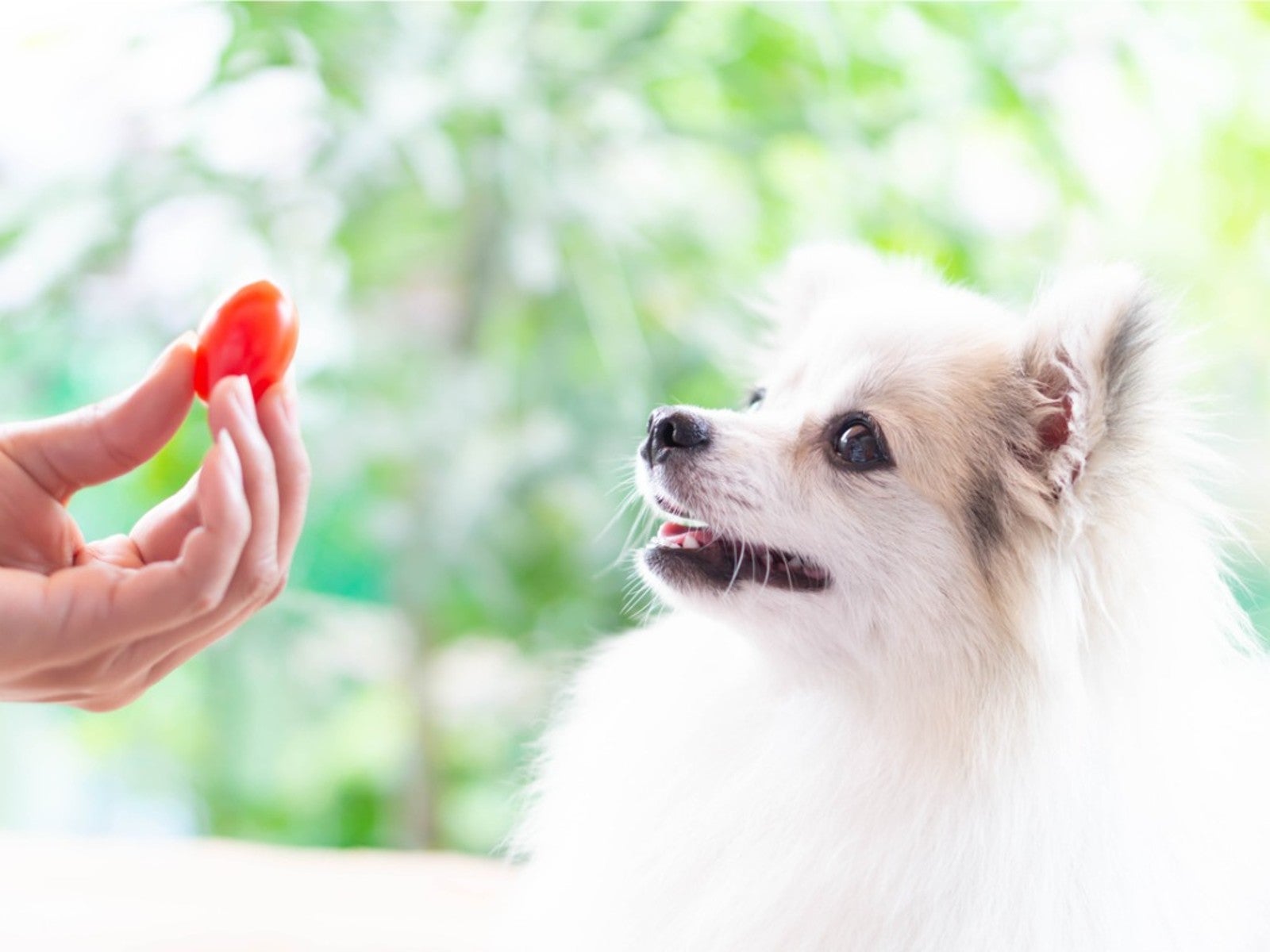Can Dogs Eat Tomatoes? Safely Growing Tomatoes With Dogs


Whether you grow this delicious fruit in the garden or in a pot on the windowsill, it can be difficult to keep dogs and tomatoes apart. You may have heard that tomatoes are poisonous to dogs. Which leads many pet owners to question whether or not it's safe for dogs to consume foods containing tomato products. The answer may surprise you.
Are Tomato Plants Toxic to Dogs?
As a member of the nightshade family, tomato plants contain both solanine and tomatine. These toxins are found primarily in the stems and leaves of tomato plants, with lesser amounts in the roots and unripe fruit. These parts of the plant are considered poisonous to dogs.
Although veterinary sources indicate dogs would need to consume a large amount of foliage or green tomatoes to become ill, it's best to be prudent whenever your pet is around tomato plants. If your dog has consumed any part of a tomato plant or unripe fruit, contact your veterinarian, and watch for these symptoms:
- Vomiting
- Diarrhea
- Lack of coordination
- Lethargy
- Tremors
- Abnormal heart rate
One of the best ways to keep your dog safe is by fencing the garden and denying your pet access to any nightshade family vegetable plants such as tomatoes, peppers, potatoes, and eggplant. Puppies, especially those going through the teething stage, are particularly prone to chewing on inappropriate things. Some dogs never seem to outgrow this stage.
It's also important to remember that the garden is not the only place where your dog can access tomato plants. Stems from harvested fruit, green tomatoes, and tomato seedlings may be within your dog's reach inside the home. Compost containers and outside bins can be another source of tomato plant material and unripe fruit.
Are Tomatoes Good For Dogs?
Although pets shouldn't consume tomato plants and green fruit, dogs can eat fully ripe tomatoes. Like humans, the plant may be poisonous, but the fruit is non-toxic and safe for dogs to consume. In fact, tomatoes may offer your furry friend a few health benefits.
Tomatoes are a low sugar, low fat food and provide fiber, vitamins, minerals, and antioxidants to the diet. Studies on humans have shown tomatoes improve heart health and reduce the risk of cancer. The fiber in tomatoes benefits the digestive system and vitamins and minerals serve a multitude of functions in our bodies.
Sign up for the Gardening Know How newsletter today and receive a free copy of our e-book "How to Grow Delicious Tomatoes".
In order to receive these benefits, humans need to consume a diet rich in tomatoes. Unfortunately, even though ripe tomatoes are non-toxic to your pet, it's best to limit the amount of this fruit you allow your dog to eat.
Why Are Tomatoes Bad For Dogs?
Although ripe tomatoes are non-toxic to dogs, this fruit tends to be very acidic. This acidity can upset your dog's stomach, especially if your pet has gastrointestinal issues. It's rare, but some dogs can be allergic to tomatoes. The general recommendation is to introduce tomatoes slowly and limit dogs to one or two small ripe tomatoes per week.
You might also want to consider growing low-acid tomatoes for dogs. Some varieties are marketed as such, but mature color can be a good indicator of a tomato's pH level. Red, brown, and purple tomatoes are usually the most acidic, while varieties that mature to a whitish color are the least. Yellow, orange, and pink tomatoes tend to fall in the middle.
Dog owners can safely offer cooked tomatoes to their dogs, but care should be taken when feeding commercially prepared foods. Sauces and tomato-based dishes can contain other ingredients, like garlic and onions, which are harmful to dogs. It's prudent to read the labels on human food before sharing these items with your pets.
Finally, be aware that many dogs will gulp treats without chewing. While it may be tempting to toss a cherry tomato to your dog, this could present a choking hazard. It's advisable to cut tomatoes into small, treat-sized pieces before offering them to your dog.

Laura Miller has been gardening all her life. Holding a degree in Biology, Nutrition, and Agriculture, Laura's area of expertise is vegetables, herbs, and all things edible. She lives in Ohio.